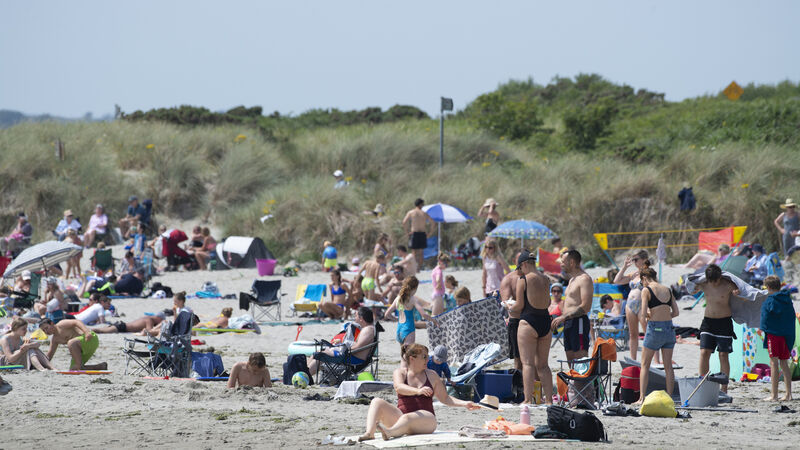A record we didn't want to break: Irish temperatures surge past 33C

People making the most of the sunshine at Inchydoney Beach, West Cork. Picture: Dan Linehan
An unenviable record has been set, with the mercury exceeding 33C during the current heatwave, higher than any recorded temperature in Ireland for 135 years.
Phoenix Park in Dublin reached the mark provisionally and, if confirmed as accurate, it would be Ireland’s highest ever July temperature, just shy of the highest ever recorded at Kilkenny Castle in 1887, when the temperature is said to have reached 33.3C.
CLIMATE & SUSTAINABILITY HUB













